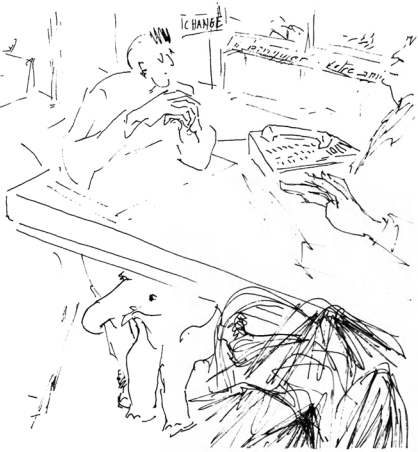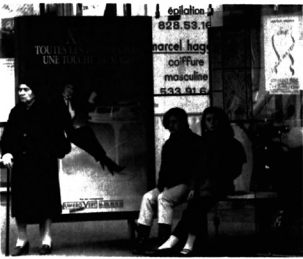15.2: Questions et Réponses
- Page ID
- 142360
Questions et Réponses
B. How long have you been here? / I've been here for six hours.
- —Depuis quand es-tu ici?
- —Je suis ici depuis une demi-heure.
- —Depuis combien de temps étudiez-vous le français?
- —J'étudié le français depuis deux semestres.
- —Depuis quand joue-t-il du piano?
- —Il joue du piano depuis quinze ans.
C. How long have you been here? / I've been here since six o'clock.
- —Depuis quand es-tu ici?
- —Je suis ici depuis six heures.
- —Depuis quand étudiez-vous le français?
- —J'étudie le français depuis le mois de septembre.
- —Depuis quand joue-t-il du piano?
- —Il joue du piano depuis l'âge de sept ans.
Grammar Notes: All these depuis questions are about something still going on (an action or a continuing state/condition). As we can in English, it is possible in French to indicate how long ago something started by (1) stating the amount of time it has been going on, as in exercise B, or (2) stating when it first started, as in exercise C. French is simpler than English in that it doesn't use a special verb construction to express something begun in the past, still going on. One just uses the present tense, with this depuis construction or with another construction, as illustrated in exercise D below.
D. How long have you been here? / I've been here for six hours.
- —Depuis combien de temps es-tu ici?
- —Il y a six heures que je suis ici.
- —Depuis quand étudiez-vous le français?
- —Il y a deux semestres que j'étudie le français.
- —Depuis combien de temps joue-t-il du piano?
- —Il y a quinze ans qu'il joue du piano.


Grammar Notes: This time we answered the questions again with expressions of time (duration), but with the phrase il y a... que. Note that we've used depuis combien de temps in the question sets here, as we did once in exercise A. That simply focuses on "period of time." You don't have to use it. Depuis quand does the job and can be answered either with "duration" (as in exercises A and C) or with "when it started" (as in exercise B). As you see, the il y a... que construction is used only to indicate duration, not the point at which something started.
Exercice III
Be prepared to answer a number of questions that may be posed by your teacher or fellow students regarding how long you have been able to do various things (swim, drive, play an instrument). Write at least five questions of that type that you will ask your instructor or other students.

